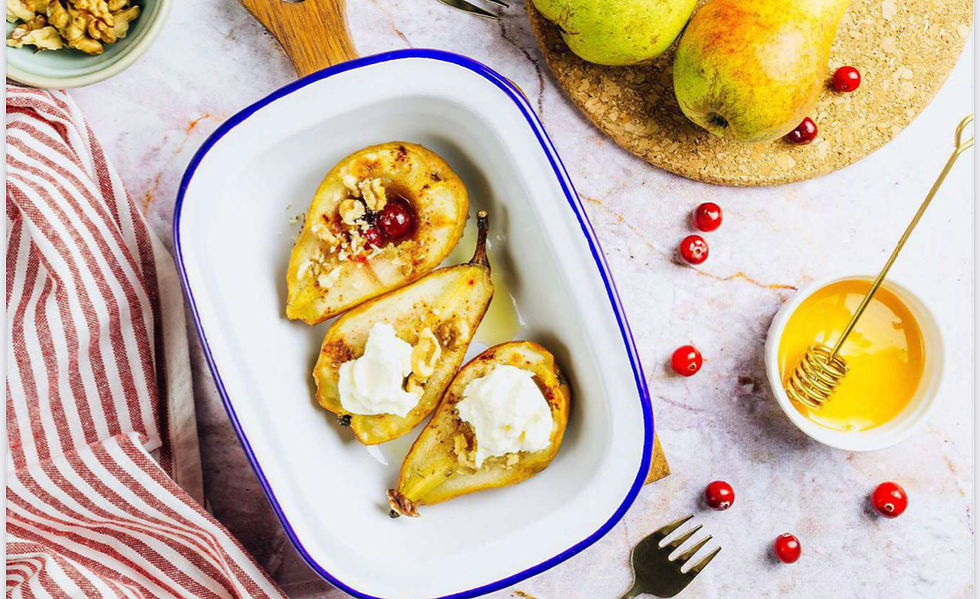What to look for in a Prenatal Vitamin
- Caelin Folsom, RHN

- Mar 8, 2020
- 4 min read
Prenatal's are one of the most important vitamins you will ever take. If you are going to choose one vitamin to "splurge" on, THIS IS IT.

A prenatal vitamin does not replace a healthy diet however, added support is necessary during this time of immense growth. The idea is to optimize your nutrient intake to prevent deficiencies later on in pregnancy and provide proper nutrients to your growing baby. Ideally I recommend to start a prenatal vitamin three months prior to conceiving and continuing it until you are six months postpartum or six months after weaning from breastfeeding.
Recently I discovered that one of the top selling #1 doctor recommended prenatal vitamins has the most disturbing ingredients. Honestly, I was shocked that it is even allowed on the market. Upon further investigation, it's not just this one. There are many cheap prenatal vitamins readily available with the same horrifying ingredients. This is why it's so important to work with someone who is qualified to explain the ingredients to you.
When choosing a prenatal vitamin these are a few things you should AVOID in the non-medicinal ingredient list:
BHT - This is a man-made (synthetic) ingredient commonly added to cosmetics and cereals to keep them fresh. It is also used in jet fuel, petroleum products, and embalming fluid. It is a known endocrine disruptor and has been found to be carcinogenic in rat studies. This is the top non-medicinal ingredient in the #1 doctor-recommended prenatal vitamin.
CARMINE - This is a dye derived from beetles. Why is it in your prenatal vitamin. This is the second non-medicinal ingredient in the #1 doctor-recommended prenatal vitamin.
SUCROSE/GLUCOSE/SUGAR - I hate when vitamins add sugar or other sweeteners to their capsules. I can understand adding stevia, agave, xylitol, or honey to some children's vitamins or liquid formula's however, there is really no reason to have this as an ingredient in an encapsulated vitamin.
SHELLAC - Again, this is commonly derived from beetles and is used to make the tablet or capsule shine... It's a popular ingredient in floor polish and shouldn't be ingested.
SODIUM LAURYL SULPHATE: This is an emulsifying chemical used in many soaps. It is known to disrupt hormones and cause irritation to the skin, eyes, lungs, and other organs.
Now let's take a look at the medicinal ingredients. When choosing a prenatal vitamin there are a few things that are really important to look for:
Active methylated forms of B vitamins - Many prenatal's and multi vitamins are not using the highly absorbable forms of vitamins. You want to ensure that you are actually able to metabolize the vitamin you are consuming. Otherwise, whats the point? Key ones to look at are:
B12 - should be in the form of methylcobalamin NOT cyanocobalmin.
B6 - should be in the form of pyridoxal-5'-phosphate NOT pyridoxine hydrochloride
B9 - AKA Folate should be in the form of methylfolate (5-MTHF) NOT Folic Acid.
Adequate doses of specific vitamins - I recommend to look for a prenatal that has good doses of these vitamins. Most of the B vitamins should around 50-100mg for the daily dose, B12 and Folate should be around 1000mcg (1 mg) for the daily dose.
Choline - Choosing a prenatal with choline is important. Choline is important for brain development and preventing neural tube defects. It works closely with folate offering similar benefits. Many prenatal vitamins do not include choline.
No extra fillers, chemicals, preservatives, dyes, etc. - Check the non-medicinal ingredient list! There shouldn't be a long list of undesirable ingredients. In a good quality vitamin there should just be a short list that tells you what the actual capsule is made from, and usually microcrystalline cellulose which is a non-toxic base in most supplements.
There are many whole food vitamins on the market. While i'm not against these vitamins there are a few things you should be aware of. They are often made with S.Cerevisiae which is a species of yeast. It's a complicated process but essentially begins with a whole food that is broken down, enriched with synthetic vitamins, enzymes, yeast, and brown rice that are then turned into powder and blended into a tablet form. The doses of B vitamins in whole food vitamins are typically quite low around 1 mg per tablet. Additionally, if you are a woman who has had issues with candida or yeast overgrowth this will not be the best option for you. However, due to the low doses of B vitamins some women tolerate these better than the higher dose option.
My favourite prenatal vitamin is the NFH Prenatal SAP. This prenatal is third party laboratory tested for identity, potency and purity. This means that you know what is listed on the label is what is actually in the supplement. It's non-medicinal ingredients are clean and the capsules are vegetarian. They are free from gluten, soy, eggs, dairy, yeast, citrus, preservatives, artificial flavour or colour, and sugar. They have the proper dosages and contain the active methylated forms of B Vitamins including methylfolate.

*This is in no way sponsored by NFH and are of my own opinion. As always I recommend speaking with a qualified practitioner when choosing which prenatal is best for you!
I hope this helps you in your search for a prenatal vitamin. If you have any questions please contact me through my website, email, or social media.



Comments